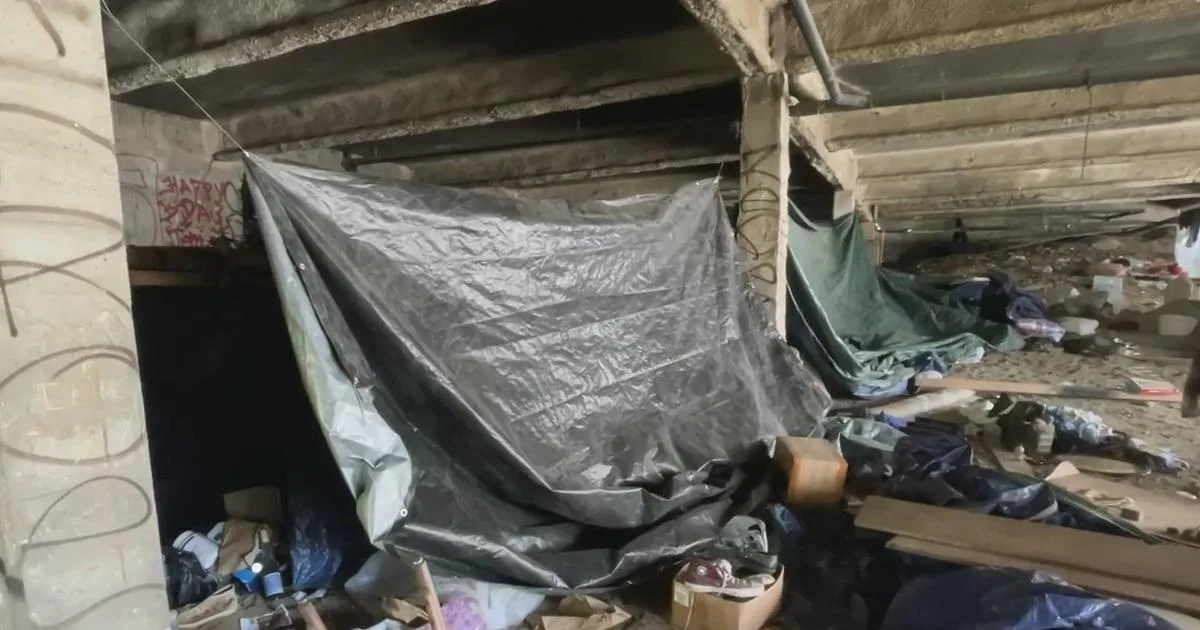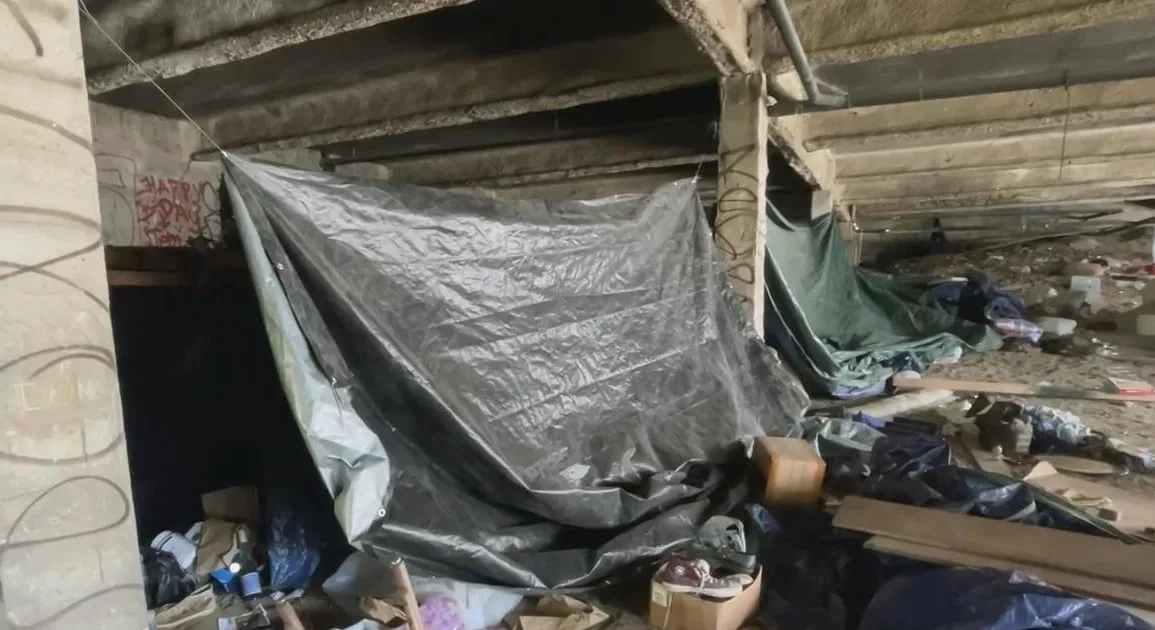
SAN FRANCISCO – An apartment complex in San Francisco has sought the city’s assistance, as a homeless encampment underneath their building has grown.
The complex at 155 Haight Street may look normal above ground, but venturing underneath reveals an encampment.
It was created by a group of unhoused individuals. Steven Leo, who manages the property, said the underground encampment is creating a slew of problems and health concerns.
KPIX wanted to get a better look of this underground encampment so inside they went.
“There is a makeshift fire pit right here and you can see a fluid lighter here, to light up the fire, and it creates a hazard to the building,” Leo told KPIX.
Leo they have reached out to the city multiple times about this. Police has also been called out to the building.
“They want us to clear the encampment because its private property, “Leo said.
Everything from trash, human waste and old needles, can be found at the complex.
The property manager reached out to The Rev. Amos Brown with the NAACP chapter San Francisco, whose organization has stepped in to help the growing crisis.
“A fire happened some weeks ago. This is dangerous, the persons who been camping out here, have gone into his apartment building, threatened the residents and that just should not be.” Brown said…
Brown is working with a familiar face one may remember from a viral video earlier this year. The 71-year-old art gallery owner, Collier Gwin, sprayed an unhoused woman with a water hose who was camped out outside his business.
He was charged with a misdemeanor, facing jail time. Last week, he agreed to a deal with the District Attorney to complete community service instead.
“I couldn’t take it anymore, you know, I was developing PTSD,” Gwin said. “I went to the hospital twice for panic attacks and kept putting a situation on me where people wouldn’t come into my gallery. It’s been ordered, 35 hours. I’m hoping I’ll be with this man for 200 hours.”
During his community service, Gwin will work and learn within different departments of the church regarding social action and justice.
He will assist in crafting a holistic response to homelessness and the displacement of Black people in the city.
“This represents restorative justice at its best. Something that even African Americans and other marginalized persons should receive anyway from our criminal justice system,” Rev. Brown said.


